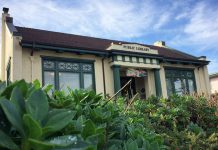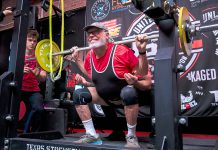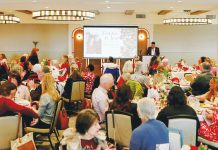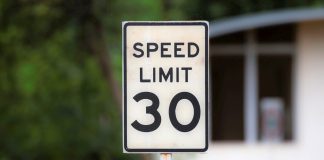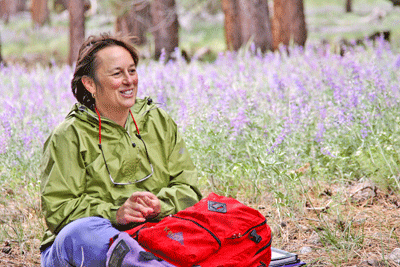
“A thousand times a day, nature–in the most ordinary of places–has something to tell or show us; something it wants us to touch, smell, or feel; something it wants all of us, not just the overtly artistic, to express.”
–Joyce McGreevy
Sarah Rabkin stood at the top of the world in Colorado, the Continental Divide, and looked West toward home. Berkeley-born, the recent Harvard graduate had landed a job teaching biology in Colorado Springs in the magnificent Rocky Mountains.
“Getting up to the top, I would find myself peering Westward, and thinking if I peered hard enough I could see the ocean. There was some force pulling me back to California,” she says, “There was a part of me that was draining westward, draining back to what my spirit and body felt was home.”
She remembered her childhood when she regularly roamed the East Bay Hills in awe. Once she had backpacked into the Sierra high country where she daily walked the open country and lay under the stars at night.
Connecting to the wind, sun, plants and animals, she found a larger, non-human world. “We do respond to the places of our childhood. I have found the landscapes of the central and northern coasts of California to be in my blood,” the Santa Cruz resident says.
Then Rabkin learned about a new graduate program at UCSC called Science Communication, which was offering training for people with a science background in writing and editing in the sciences, specifically for people who wanted to translate technical and scientific information for general audiences.
After graduating in 1983, she was asked to teach writing in the University’s Environmental Studies Department. In addition, the author teaches writing retreats for a variety of outdoor education organizations, field stations, and institutes.
“I’m really happy now to be living here with my feet planted on the shore of Monterey Bay.” But she still remembers the smell of Mackintosh apple orchards on a sunny, crisp autumn day while attending Harvard.
Rabkin will guide us through Henry Cowell Redwoods State Park on a mini-retreat called “Walking with a Notebook: A San Lorenzo Valley Watershed Ramble” on August 31st.
We will learn how to open all our five senses to explore and write about nature, like listening to the river’s voices and smelling the redwood’s bark as it bakes in the summer sun.
“I love the many ways that carrying a notebook can enrich a walk; even carrying a little pocket-size notebook with you,” she says. “For me it’s like having a witching wand or talisman, an object that helps you channel and focus your attention and increase your enjoyment of taking a walk.”
In her many writing retreats, which are a tremendous source of joy and hope for Rabkin, she meets people full of passion, curiosity, and intelligence at the intersection between creative spirit and love of landscape.
Whether you are interested in natural history or whether you are interested in the spiritual, emotional or aesthetic element in being in the larger- than- human world, Rabkin believes that carrying a notebook can shift your mood and bring you into the moment.
On the walk Rabkin will share ideas and techniques that people can use to enhance the value of their notebook to the walk and enrich memories. “It can create fodder for more creative work, so that if you like to write prose or poetry, what lands in the notebook can become raw material for later with longer and more polished pieces,” the instructor says.
“I’ve crafted my livelihood from intertwining passions—language, literature, art, natural history and the larger-than-human world. I enjoy both the sociability of teaching and the solitary hours entailed in writing, editing, and natural history practice,” the writer says.
Rabkin and I will lead the Saturday morning walk on August 31 at Henry Cowell Redwoods State Park. The walk is free and sponsored by an environmental education grant from the San Lorenzo Valley Water District. For more information, contact me at ca****@*********on.com.
– Carol Carson, M.Ed., is a writer, naturalist, and educator.

